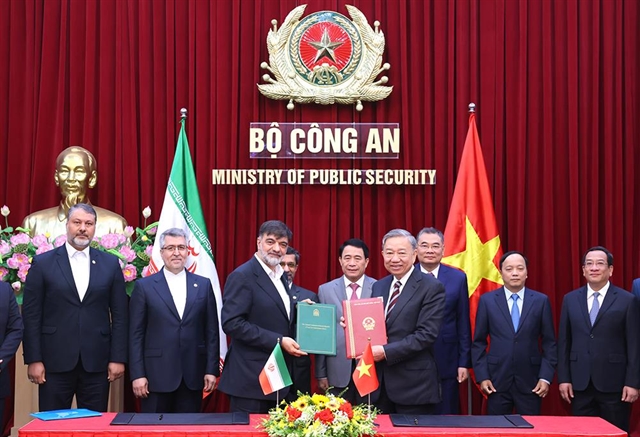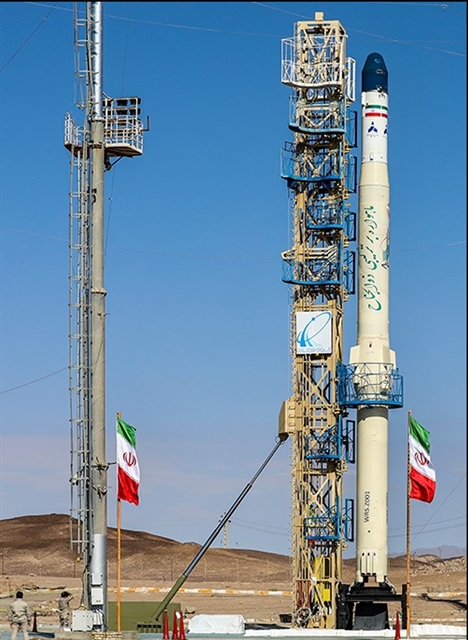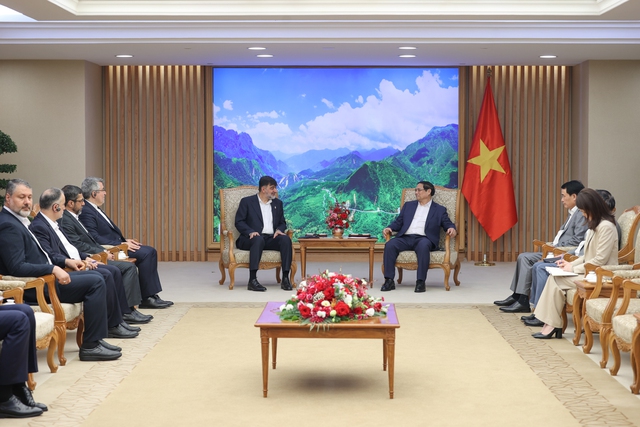 Politics & Law
Politics & Law

"Reflecting on 46 years of the Islamic Revolution of Iran and bilateral relations of Iran and Việt Nam" written by Ali Akbar Nazari, Ambassador of Iran for Việt Nam News on February 11, 2025
Forty-six years have passed since the Islamic Revolution of Iran, marking a significant milestone in our country's history. The revolution not only revived Iran's national and religious identity but also strengthened the connection between its rich historical heritage and Islamic principles. The Islamic Revolution supported and promoted Islamic values in the arts and culture, producing globally acclaimed works across visual arts, cinema, music and literature while maintaining its Islamic identity.
In 1979, the Islamic Revolution led to the establishment of the Islamic Republic of Iran, creating a political structure grounded in Islamic principles and the people's will. Over the years, the Islamic Republic has ensured broad citizen participation through an Islamic system via free elections and empowering Iranians to shape our country's destiny.
 |
| General Tô Lâm (fourth from right) and Brigadier General Ahmad Reza Radan signed a memorandum of understanding on cooperation between the Ministry of Public Security of Việt Nam and the Islamic Republic of Iran Law Enforcement Command in Hà Nội on May 14, 2024. — Photos courtesy of the Iranian embassy |
One of the revolution's most notable achievements has been progress in science and technology. Iran has emerged as a success in various scientific fields, particularly in medicine, nanotechnology, aerospace and peaceful nuclear science, and is now recognised for its advanced medical treatments, research capabilities and the production of high-tech equipment for space and the launch of over 10 satellites.
Iran has taken important steps towards self-sufficiency and economic development. Massive infrastructure projects in energy, road construction, industry and agriculture have significantly improved living standards and increased domestic production. Despite facing challenges such as an eight-year imposed war, economic sanctions and military threats, Iran has preserved its independence through resilience and steadfastness, emerging as one of the largest economies in the region.
Iran is also recognised as a regional military power. The development of ballistic missiles with a range of 2,000 kilometres and the original 'Ghadir' submarine capable of carrying anti-ship missiles exemplify Iran's defence capabilities. Some of these achievements were showcased at the Việt Nam Defence Expo held in Hà Nội in December 2024, receiving admiration from Vietnamese and international visitors.
In the industrial sector, the country now ranks prominently in the global production of steel, aluminum, cement, ceramics, vehicle engines and non-oil exports. Iran's petrochemical products have also grown significantly since 1979, positioning the country as one of the top 20 global economic powers.
 |
| Zuljanah is Iran’s first indigenously designed and manufactured “hybrid” fuel satellite launch vehicle unveiled on 1st February 2021. |
Iran has made significant strides in the scientific field, ranking 15th globally in nanotechnology research and publishing over 10,000 articles in this domain. The country produces more than 97 per cent of its pharmaceutical needs domestically, and has achieved self-sufficiency in generic drug production and successfully produced a homegrown vaccine to combat COVID-19.
Iran has also made considerable advancements in sports, expanding the variety of sports federations from around 30 to over 170. Iranian women have made substantial progress in social, scientific, sports and economic arenas, with growing participation in politics and higher education, and have also won multiple medals in international competitions.
In foreign policy, Iran’s key principles include dignity, wisdom, expediency and a commitment to maintaining independence from global power blocs and supporting oppressed nations. Iran's focus on friendly relations with neighbouring countries, active diplomacy and reinforcing a resilient economy ensures the safeguarding of national interests and security. Cultural diplomacy also plays a crucial role in presenting a positive and accurate image of Iran to the world.
As we celebrate the 46th anniversary of the Islamic Revolution, it is also an opportune time to reflect on the robust and dynamic bilateral relations between Iran and Việt Nam. Our two nations share a history of mutual respect, cooperation and solidarity, grounded in shared values and aspirations.
In 2025, Iran and Việt Nam commemorate the 52nd anniversary of diplomatic relations, a testament to over five decades of mutual respect, friendship and cooperation across political, economic and cultural spheres. The roots of our connection, however, extend even deeper into history, with the first people-to-people contacts dating back to the 15th century, when Iranian merchants traveled to Việt Nam. A key historical figure linking the two nations is Alexander de Rhodes, a founder of the modern Vietnamese alphabet, who passed away and was buried in Isfahan, Iran.
 |
| Prime Minister Phạm Minh Chính received visiting Brigadier General Ahmad Reza Radan, Commander of Iran’s Law Enforcement Command, in Hà Nội on May 14, 2024. |
The bond between Iran and Việt Nam is further strengthened by our common values of independence, justice and the pursuit of freedom. Both nations have consistently supported each other on numerous global platforms, echoing their mutual commitment to multilateralism, opposition to unilateralism and respect for international law and territorial integrity. The leaders of both countries have regularly reiterated their commitment to strengthening bilateral relations through frequent high-level delegation exchanges.
In 2024, our political relations continue to be marked by high-level contacts between the two countries' Presidents, Prime Ministers and Vice Presidents on the sidelines of BRICS, the NAM Summit and other multilateral forums. Last year also witnessed a busy schedule of delegation exchanges between the two countries.
For the New Year 2025, I would like to extend my best wishes to the Government and people of Việt Nam and wish you prosperity and progress in all aspects of life.
Chúc mừng năm mới to all Vietnamese friends!
Long live the friendship between Iran and Việt Nam!




